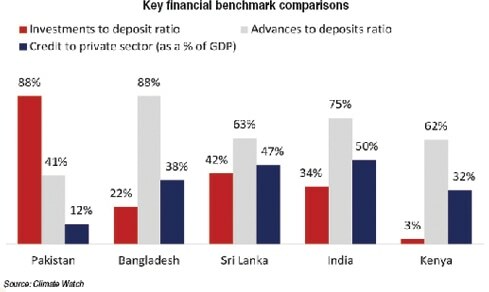SINCE devolution of fiscal, administrative and legislative powers, the provincial governments have a freer hand in deciding matters of economy, expenses and allocating development funds according to their own priorities.
In a report titled, ‘Devolution and social development’, the Social Policy and Development Centre has, however, made out a case why provinces should be empowered to raise enough tax resources to meet their overall expenditures.
There’s no denying that the share of provinces in the Federal Divisible Pool is the inherent right of the federating units. However, with the federal control of taxes, provinces are dependant on federal transfers for major funds and allocations, which saps their will to raise their own taxes. The report argues that since provinces are distinctive in terms of expenditure and working dynamics, they need to be given a required level of leverage on spending and increasing their resource base, which control over taxes should be able to do so.
One of the objections that report raises against the centralisation of tax powers is that it creates a ‘fiscal imbalance’. Provinces are largely dependant on fiscal transfers from the federation, which may not suffice to meet the expenditure, and this can result in a gap between revenue and spending. An apt example is that of the GST on services 2011-12, where the difference between budget estimate and revised estimate was 26 per cent. Such discrepancies create uncertainty when it comes to devising a provincial fiscal policy.
Decentralising powers to tax also encourages tax compliance since taxpayers are assured that the resources raised will be utilised for their benefit. As of now, they do not see a distinct connection between the taxes they pay and the benefits they receive. By the same token, this holds the provinces accountable for the welfare of its citizens. According to the study, this also allows the system to ‘decide their desired mix of public services and revenue that best suit them’. In short, this method gives the provincial setup room to work according to their financial needs while promoting ‘fiscal discipline’.
To strengthen its case, the report presents Sindh Revenue Board (SRB) — which collects GST on specified services — as a successful example of decentralisation. In the budget 2011-12 the Federal Board of Revenue (FBR) set up a target of 53.5 billion, which it revised to Rs40.1 billion, showing a decline of eight per cent. SRB, on the other hand, aimed at Rs25 billion and achieved it. Encouraged by this result, the province has set up a higher target of Rs32 billion for 2012-13, whereas FBR has settled for a moderate goal of 54.5 billion.
According to the report, Sindh’s success has not only generated more revenue for the province, ‘but also minimised uncertainties in expenditure planning and execution.’
However, despite achievement of Sindh, and the setting up of Punjab Revenue Authority, the federal government refuses to delegate the responsibility of collecting General Sales Tax (GST) on goods and certain services to the provinces. It argues that the provincial setups do not possess the infrastructure to collect the tax, and devolution may result in further revenue loss. It also wants to collect the GST goods and services as an integrated Value Added Tax (Vat) by renaming it Reformed GST (RGST).
Further, the federal government feels that given the distribution of tax base on services, provinces with more headquarters may ‘capitalise’ on revenue to the disadvantage of others.
In response, the report counters that crediting and debiting Vat to different regions can lead to a chaos, since ‘it is unsuited for direct revenue sharing on derivative basis.’ Also, collecting tax to RGST will be more challenging and difficult.
The study also focuses on two very important, yet virtually untapped sources of revenue: agriculture and property. The provincial governments have the powers to tax both the sectors; however, they have made little headway in taking advantage of this profitable tax base. According to the report, ‘no reforms have been introduced in the agriculture income tax, while the provisions of Agriculture Income tax (AIT) Act remain unchanged’. As of now, the combined revenue of the provinces from this sector is Rs1 billion, as against its potential of yielding over Rs10 billion. The sector is virtually exempted from income taxation.
Unfortunately, since the provincial Board of Revenue, which collects the tax, does not possess the effective facilities to carry out a proper assessment of individual tax returns, the results are often distorted.
Another deterrent in non-submission of taxes is that the penalty set for farmers is a mere Rs1,000. However, with attractive support prices and subsidies for crops introduced in the last five years, there’s little reason why farmers should not be included in the tax net.
The fact, that privileged elite avoid paying taxes and get away with, also discourages tax compliance in general. The report, therefore suggests that AIT should be effectively implemented to ‘reduce perceptions of inequity in the tax system’.
This should eventually act as a proxy for land reforms. Further, penalty should be raised to 100 per cent of the due tax. The study claims if the reformed AIT is implemented, the provinces should be able to collect Rs35 billion, with 80 per cent tax efficiency. Still, 95 per cent of the farmers with low incomes will remain outside the tax net.













































Dear visitor, the comments section is undergoing an overhaul and will return soon.